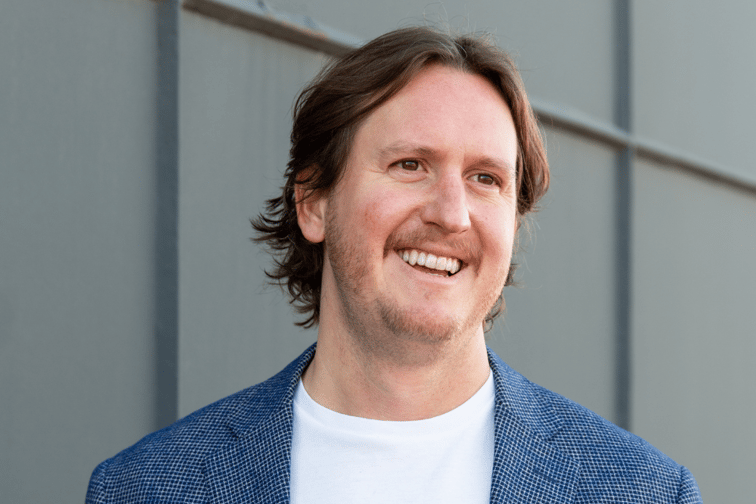

This article was produced in partnership with Foresight Commercial Insurance.
Desmond Devoy, of Insurance Business America, sat down with David Fontain, CEO and co-founder of Foresight Commercial Insurance, to discuss how his technology can help every worker to come home safe after their shift.
Insurance can be a force for good.
And marrying data points with real world observations and rewarding companies who make their workplaces safer for workers with lower premiums, is a win-win for everyone.
“We believe that insurance is a very powerful instrument,” said David Fontain (pictured), CEO and co-founder of Foresight Insurance.
For him it is more than just paying out claims.
“It’s using the power of insurance to achieve a greater purpose. And for us, that means keeping workers safe and helping them get home to their family and helping businesses reduce their costs and be more sustainable,” he said.
He believes it is still up in the air if 2023 will be “flat” or recessionary, but either way, “there’s no better time for us to be using something like insurance to help people, help businesses, survive,” while keeping insurance costs down and keep workers employed and safe.
“No-one should suffer a life-changing, permanent injury at work,” said Fontain. “It could just be heartbreaking to not be able to play catch with the kids because you’ve been injured at work.”
He should know. He co-founded his company, alongside partner Peter Grant, in a garage in 2015, shortly after their college friend was “killed in a workplace accident. That was really the inspirational motivator behind us, creating our risk management technology and then looking at ways that we could get the biggest impact, helping them have the most workers safe from the implementation of this technology,” he said. “And insurance was, by far, the best vehicle to make that happen.”
That risk management technology led to the creation of a brokerage in 2017, “and that’s when we first combined the insurance policy with the technology as a value-add, as a motivator to help businesses improve their risk profile,” he explained.
The brokerage has evolved into the MGU (managing general underwriter) that Foresight is today.
“Our technology is really designed around improving safety, engagement, improving compliance,” he added.
His co-founder Grant rounded out the duo as he was a civil engineer, who specialized in safety systems and risk management in the field of construction, who “designed something from the ground up that was designed to work with an insurance policy.”
By utilizing their technology, they have been “able to reduce our insurance claims frequency by 18%,” he said. This has led them to “outperform the competition in the market.”
Thanks to this technology, they “have a better understanding of our risks,” he said. “That technology enables us to price the risk, (with) much more granularity compared to the incumbent – we have a real-time understanding of how these risks are better performing in terms of safety, risk management and compliance, which really enables us to better tailor the pricing.”
Relationships are important and so too are the ones his company has with insurance brokers, since they share a similar goal.
“Brokers care about their clients and they’ll go above and beyond to ensure they receive the best possible solutions,” he said. By “improving the environment for workers, and keeping more workers safe, that’s a big motivator for our broker partners. So they certainly understand getting the value proposition and they love it.”
Read to learn more about what are the responsibilities of an insurance broker here.
He compared the technology to having a personal trainer, having “someone who is constantly working with them to help them reach new heights.”
Compliance certificates and workplace safety videos certainly have their place – but what comes after, and what can be done beforehand?
His company has a “safety score,” which can fluctuate on a weekly basis.
“That enables us to offer encouragement. Like, when those companies are on an A score, that means that they’re going above and beyond and outperforming the industry in terms of safety,” he said. Those scores “really enable our safety coaches to really focus in on those companies and really offer assistance and help them aspire to be market leading. That’s a much more dynamic approach. And that’s reflected in our pricing as well.”
And there is a more immediate financial reward too, in that “we can track their savings, basically,” he said. “We can essentially help these companies, after working with them, fast track those savings and deliver pricing relief sooner than it would be with a traditional, experienced company.”
Heading into 2023, from his perspective, he is seeing “the decline in later-stage capital due to macro-economic conditions.” Technology can be great to fuel growth, as he saw in 2021, but now technology has to have a positive impact on the bottom line, “in terms of underwriting profitability, or some other aspect that’s going to make you more competitive than the incumbents. ‘What am I delivering here?’’ he asked rhetorically. “You really need the technology to provide some kind of bottom-line advantage.”
He believes his company has been “able to innovate on the traditional workers’ compensation model,” and that 2023 will be a good one for Foresight.
“We are expanding our workers’ compensation offerings,” he said. “Currently, we’re piloting a commercial auto package program, which is really exciting.”
Foresight Commercial Insurance is a workers’ compensation insurtech that ties safe work practises to insurance savings.
